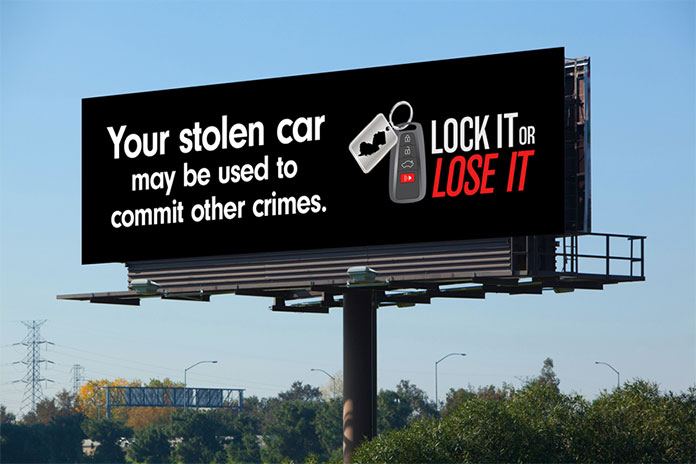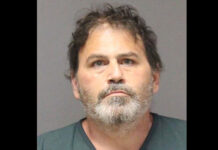
NEW JERSEY – Attorney General Gurbir S. Grewal and the Office of the Insurance Fraud Prosecutor (OIFP) recently announced the “Lock It or Lose It” public campaign, a campaign to bring awareness to residents to not leave their cars unlocked with the key fob inside.
With the increase in vehicle thefts, especially high-end ones, the campaign wants to counter the steady increase in luxury vehicle thefts that cost the insurance industry billions of dollars each year nationwide in claim payouts and investigative costs.
Soon “Lock It or Lose It’ ads will appear all over the state as a reminder to residents to lock their car.
“Auto theft isn’t just for joyriding anymore. It could be a critical first step in the commission of much more serious crimes like murder and robbery,” said Attorney General Grewal. “We want people to realize that carelessly leaving their key fobs in their unlocked cars or leaving their cars running and unattended is an open invitation to car thieves who need a vehicle to carry out their criminal agenda.”
According to the New Jersey State Police, from January through September a total of 7,131 autos were reported stolen statewide, 4.4 percent fewer than reported during the same period in 2019. However, high-end auto thefts climbed 7.5 percent to 1,501.
The National Highway Traffic Safety Administration states that between 40 and 50 percent of vehicle theft is due to driver error, which includes leaving vehicle doors unlocked and leaving keys or fobs inside.
“Ironically, car thieves are stealing vehicles that are equipped with advanced anti-theft technology, but that technology is rendered useless when owners make the decision to leave key fobs inside their cars. This careless behavior encourages criminals to look for easy targets,” said Colonel Patrick J. Callahan, Superintendent of the New Jersey State Police. “The consequences of car theft are multifaceted. Stolen vehicles are often used in the commission of crimes, and the astronomical costs to insurance companies affect the insurance premiums of policyholders. A vast amount of car thefts can be avoided by simply locking your vehicles and keeping fobs in a safe location.”
“From the minute a car is reported stolen, the meter starts ticking for insurance companies whose first order of business is to conduct an investigation to determine that the claim is legitimate and not an attempt to illegally obtain a payout through fraud,” said Acting Insurance Fraud Prosecutor Thompson. “And any injuries or damages a car thief causes to people or property after driving off with your stolen car is likely to be borne by insurance providers, which translates to higher premiums for you. That’s something to consider before leaving your car unlocked and vulnerable to car thieves. Are you willing to pay the price?”
Vehicle theft is now being viewed as a contributing factor in violent crime nationwide. These thefts can be a part of untold crimes of violence. With the number of thefts growing, law enforcement agencies are looking to change that.
“As director of Newark’s Department of Public Safety, I have encouraged our residents at community meetings and through social media to not leave their cars running unattended because the risk of them being a victim increases when they park near convenience stores, gas stations, vacant lots and in their driveways,” said Newark Police Director Anthony F. Ambrose. “Please make sure your car is turned off and locked before you leave your vehicle. Last year, 25 percent of the cars stolen in the city were left running and unattended.”
“While it might be seem harmless to leave your fob or keys in your vehicle, the truth is that you are giving an open invitation to car thieves,” said Paramus Police Chief Kenneth R. Ehrenberg. “Many of these stolen cars are later involved in robberies, homicides and police pursuits which put innocent lives at risk. By taking your fobs and locking your doors you can do your part to help prevent these crimes and help keep our communities safer.”






